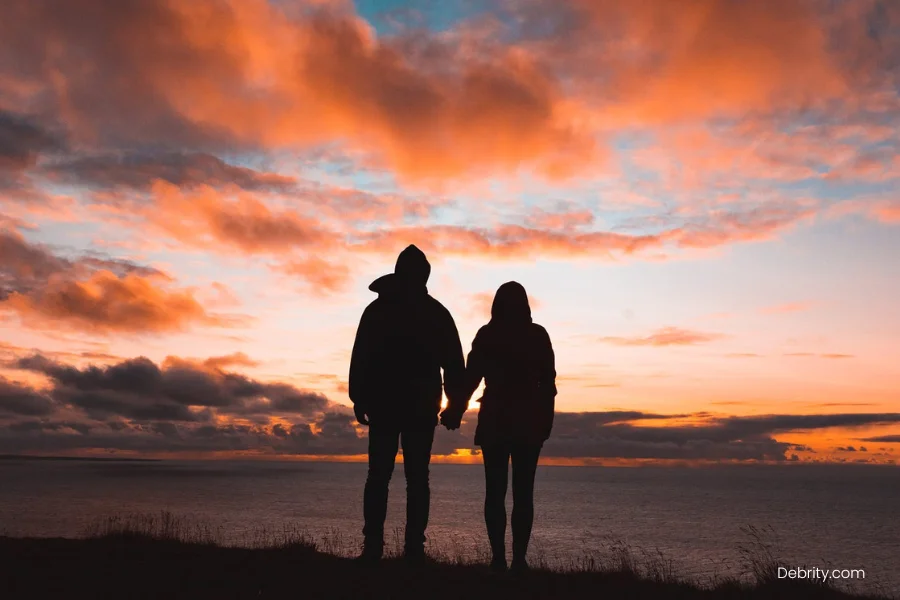Relationships are the lifeblood of our emotional well-being, nourishing us with companionship, belonging, and support.
But for individuals scarred by abuse or trauma whether psychological, physical, or emotional the path to genuine love can feel like navigating a maze in the dark.
The big question looms: can most victims find a real relationship?
Trust can be shattered, fears of intimacy grow, and self-doubt takes root but not all is lost. Many people emerge from the shadows of their past and step into healthy, fulfilling relationships.
This post will unpack the obstacles, explore the healing process, and outline how victims can rebuild trust and find authentic love.
Understanding the Impact of Trauma on Relationships
Trauma leaves traces of silent reminders that creep into relationships, manifesting as fear, doubt, or hyper-vigilance. Can most victims find a real relationship in the aftermath of such emotional wreckage?
They absolutely can, but first, they need to understand how trauma rewires their emotional landscape.
Some survivors find themselves clinging too tightly to partners, terrified of being left behind.
Others build emotional fortresses around their hearts, afraid of ever being vulnerable again. Both patterns stem from self-preservation, but neither creates space for love to flourish. Awareness of these tendencies marks the beginning of change a critical first step toward healing and real connection.
Rebuilding Trust: The First Step to Opening Up
Trust is fragile; once shattered, it can seem impossible to put the pieces back together. Betrayal cuts deep, leaving survivors wary of new connections. But here’s the good news: victims can find a real relationship by learning to trust again one step at a time.
Start small. Trust doesn’t have to be rebuilt all at once; it can begin with everyday moments. A sincere conversation with a friend, a meaningful connection with family each act of trust is a building block for future relationships. With time, these blocks form the foundation for meaningful romantic connections.
The Role of Therapy: Healing the Invisible Wounds
Therapy serves as a guiding light, illuminating the dark corners where trauma hides. It equips survivors with the tools to rewrite their narratives and break free from harmful patterns. Whether through cognitive-behavioral therapy (CBT) or eye movement desensitization and reprocessing (EMDR), therapy addresses trauma at its root.
Victims begin to see relationships in a new light as healing takes place. They learn that their past does not dictate their future.
Can most victims find a real relationship after therapy?
Absolutely. Therapy gives them the strength to let go of old wounds and open their hearts to new possibilities.
Red Flags vs. Healthy Boundaries: Knowing the Difference
Abuse distorts perception. Survivors may find themselves either hypersensitive to minor flaws or oblivious to glaring red flags. Learning to recognize the difference between toxic behavior and healthy boundaries is essential for cultivating real relationships.
Boundaries are not barriers they are necessary markers of mutual respect. By understanding this, victims can find a real relationship where both partners feel secure, respected, and free to grow.
You might like: 10 Bases in a Relationship
Can Love Heal What’s Broken?
Love is often romanticized as the ultimate cure-all, but healing requires more than affection. While love can create a safe space for victims to heal, it cannot erase trauma on its own.
In healthy relationships, partners support one another’s growth without trying to fix each other.
Victims can find a real relationship that nurtures emotional safety, allowing them to rediscover themselves beyond the pain of the past. Love becomes a companion on the healing journey not a solution, but a source of strength.
Overcoming the Paralysis of Rejection
Rejection stings, but for trauma survivors, it can feel like confirmation of every fear they’ve ever harbored. The fear of rejection keeps many victims from even attempting relationships.
Yet, learning to view rejection as a normal part of life can be transformative.
Everyone experiences rejection it’s a shared human experience, not a personal failure. Victims can find a real relationship when they learn to see rejection as a stepping stone rather than a dead end. Each no brings them closer to the right yes.
The Power of Self-Worth in Relationships
Self-worth acts like a magnet, attracting the kind of relationship an individual believes they deserve. Survivors with low self-esteem may find themselves trapped in cycles of toxic relationships. But by cultivating self-love, they can break free from these patterns.
Through practices of self-compassion, survivors learn to see themselves as worthy of respect and kindness. Victims can find a real relationship that mirrors their growing self-respect, leading to healthier, more balanced connections.
Leaning on Friends and Family for Support
No one heals in isolation. Support systems whether friends, family, or survivor groups offer a lifeline for those navigating the complexities of trauma recovery. These relationships provide encouragement, validation, and perspective.
With solid support systems, victims can find a real relationship without compromising their well-being. Trusted loved ones help survivors stay grounded, offering insight into what a healthy relationship looks and feels like.
Online Dating: An Opportunity or a Minefield?

For some survivors, online dating offers a chance to connect at their own pace, but it can also be overwhelming. Virtual spaces provide opportunities to meet new people, yet they come with risks emotional triggers and boundary breaches are all too common.
Navigating these platforms requires self-awareness and clear boundaries. When approached thoughtfully, victims can find a real relationship online, guided by the principles of respect and safety.
Why Patience Is the Secret to Real Love
Healing isn’t a linear process, and neither is building a relationship. It requires patience not only with others but with oneself. There will be setbacks, but every small step forward counts.
The journey toward love is not about rushing to find the perfect partner. It’s about discovering oneself along the way. With patience and self-acceptance, victims can find a real relationship that aligns with their emotional needs and personal growth.
Conclusion
So, can most victims find a real relationship? The answer is a resounding yes but it requires courage, effort, and healing.
Trauma may complicate relationships, but it doesn’t define them. With the right tools therapy, self-love, support systems, and patience survivors can create meaningful connections.
We’d love to hear your thoughts! If you’ve experienced similar challenges or have insights to share, leave a comment below.
Your voice matters, and your story could inspire someone on their journey toward healing and love. Let’s build a community where everyone feels heard, supported, and encouraged.

